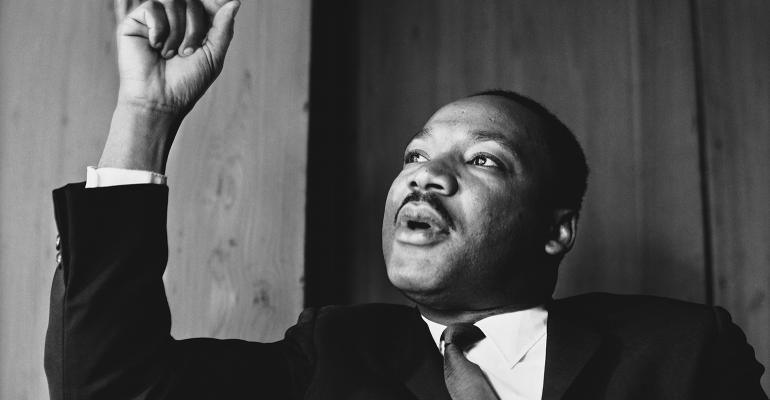“”Exactly one year before he was killed, Dr. Martin Luther King Jr. spoke these words at Riverside Church in New York:
We are now faced with the fact that tomorrow is today. We are confronted with the fierce urgency of now. In this unfolding conundrum of life and history there is such a thing as being “too late.” … This is no time for apathy or complacency. This is a time for vigorous and positive action.
Dr. King was addressing the scourge of racial discrimination, bigotry and segregation. Fifty-one years later, however, his words have even broader applicability to the persistent challenges we face in communities across our nation and our world.
Globally, the challenges of climate change, access to education, human trafficking, pollution, repression of women and girls, violence, disease, hunger, threats to democracy and personal freedom, and more threaten the quality of life on our planet. These same problems present challenges closer to home, in our own communities.
Faced with such challenges, good people must consider philanthropy. Philanthropy is inherently optimistic, reflecting the deeply held belief that we can have a positive impact on the lives of others as well as on stubborn societal issues. Through philanthropy, individuals can and do make a difference, promote change and improve communities at home and around the world.
Thoughts for the Holiday Season
Soon, many of us will gather around the Thanksgiving table with family and friends to indulge in delicious traditional foods and give thanks for our abundant blessings. A month later, we’ll gather again to enjoy more food and shower each other with gifts. The Holiday Season is upon us.
In recognition of Dr. King’s “fierce urgency of now,” families and friends might use the season to reallocate some of the money designated for gifts to each other to a commonly determined cause. Imagine the result if each of us pledged to donate to a worthy cause just 10 percent of what we would otherwise spend on holiday gifts, food and candy.
In the last two months of 2018, retailers expect holiday spending to exceed $700 billion. Ten percent of that amount would be a significant $70 billion flowing to nonprofit organizations for the benefit of a wide range of deserving people and causes. And many of us would scarcely feel the difference.
Perhaps, at your Thanksgiving table, your family can have a conversation about an important issues. Climate change, for example, is the widely accepted view that the earth’s climate is changing, that human activity contributes to this change, that it will affect all of humanity and that the time for action is “now”—or it will be too late.
Involve the Whole Family
Family members and friends could conduct research to find the best nonprofit organizations working on each selected issue. They could report back to the family for collective decision-making about where to send the family’s donations.
With climate change, they could look at U.S. Climate Action Network, 350.org or the Carbon War Room. On human trafficking, they could start with Polaris, the Laboratory to Combat Human Trafficking or Freedom Network USA. On hunger, they could look at Feeding America, Share our Strength or Meals on Wheels.
On nearly every pressing issue, there are effective nonprofit organizations working locally, nationally and globally to provide relief.
A pledge to give fewer material gifts to family, friends and co-workers—and a bit more money and time for good causes—can bring families and other social groups together with a shared purpose. It can help children focus on giving as well as getting, spread the true spirit of the season and make our community and world a better place for everyone.
“Perhaps a new spirit is rising among us,” said Dr. King. “Over the bleached bones and jumbled residue of numerous civilizations are written the pathetic words: ‘Too late.’”
Let’s avoid that painful conclusion. Take the time and make the effort to make the upcoming giving season truly generous, thoughtful and impactful.
Bruce DeBoskey, J.D., is a philanthropic strategist working across the U.S. with The DeBoskey Group to help families, businesses, foundations and family offices design and implement thoughtful philanthropic strategies and actionable plans. He is a frequent keynote speaker at conferences and workshops on philanthropy.





